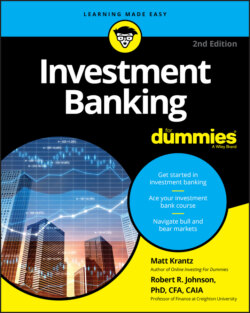Читать книгу Investment Banking For Dummies - Matthew Krantz - Страница 86
Holding the insiders hostage with lockups
ОглавлениеJust about the last thing IPO investors want to see is all sorts of selling by officers and directors the second after a company goes public. Think of it this way: Stock prices are set by supply and demand. If after a company goes public, employees and officers start dumping their stock, the market will be swamped with a supply of stock and push down the price of the shares. This unleashing of supply could create an avalanche of selling, not to mention spook investors by the strong negative signal it sends.
To prevent this downward spiral, investment bankers help companies create a lockup period (a set period of time during which the officers and directors are prohibited from selling shares). Lockup periods come in all types and can be customized by the company and its investment bankers.
Modern IPOs are increasingly using a style of lockup period that expires gradually over time. Usually, the investment banks want to lock up all insider sales for at least 90 days after the IPO to give the fledgling stock a good period of time to find a natural equilibrium between buyers and sellers. After 90 days, the first group of insiders will get the green light to sell. After that first lockup comes off, another group of shares may be released after 180 days and another group after 365 days. By spacing out the lockup expiration dates like this, the investment bankers can somewhat control the flow of stock into the market.
